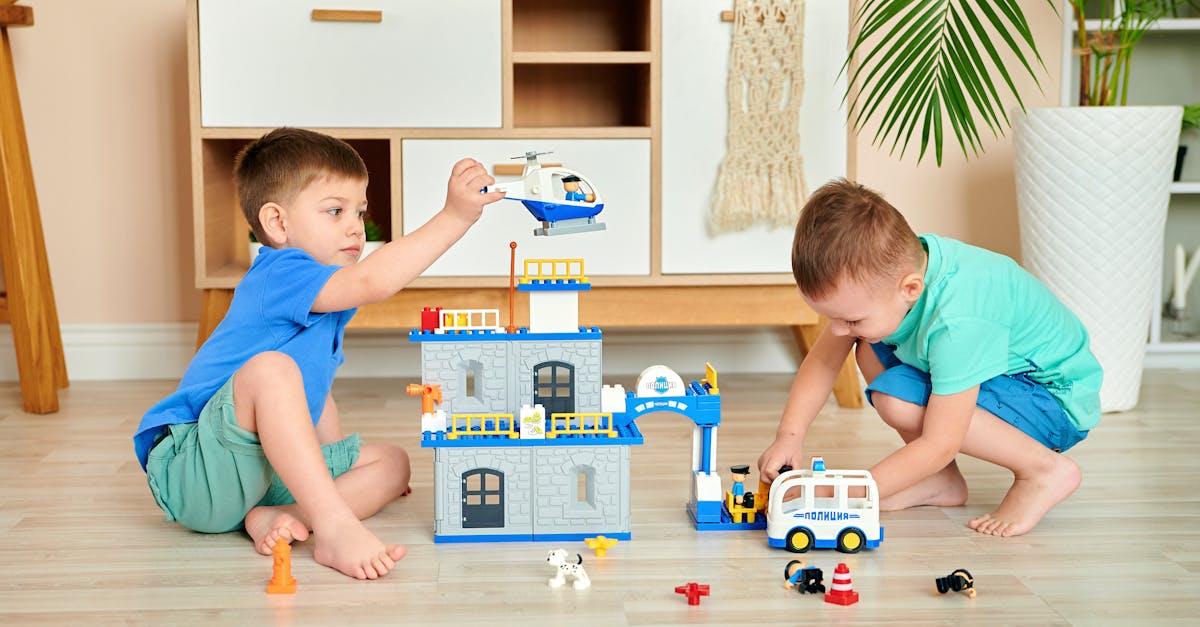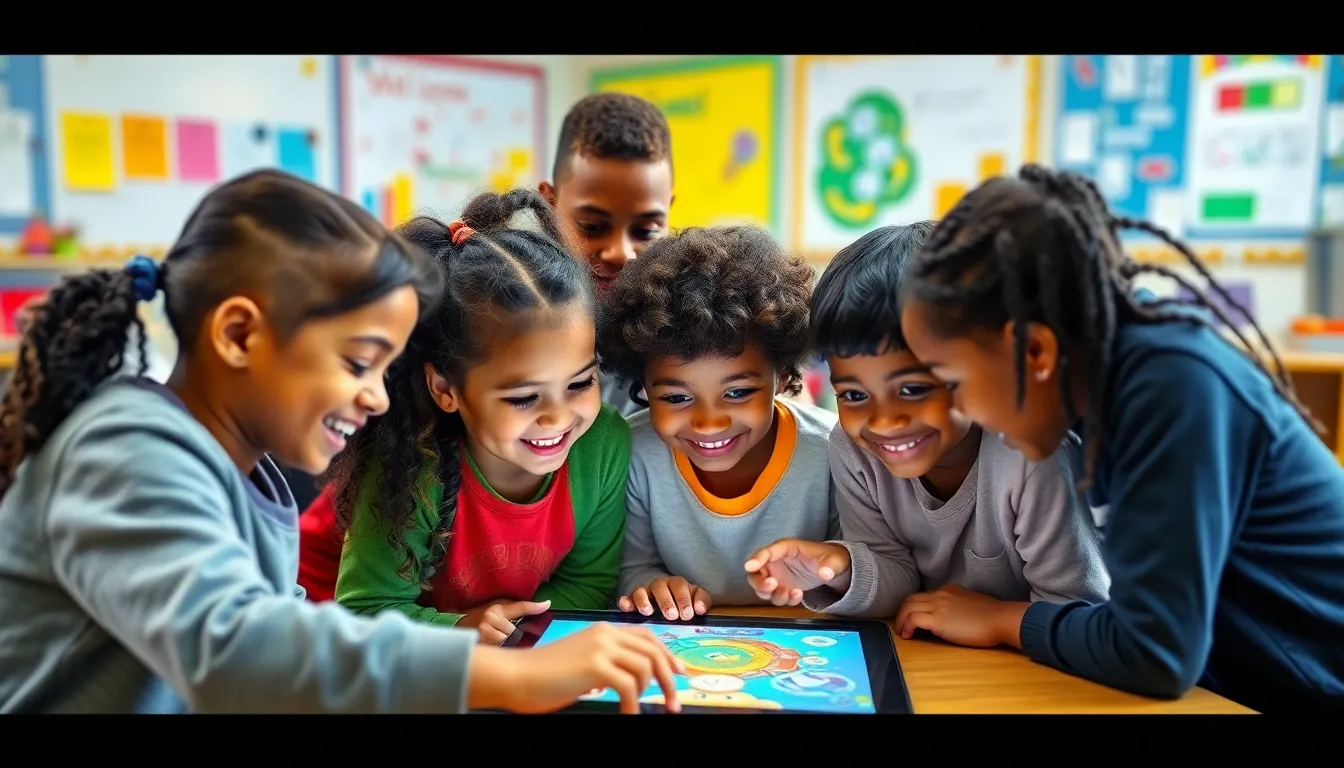Table of Contents
ToggleIn today’s educational landscape, helicopter parenting has taken flight, hovering over students like a protective drone. While it’s great to have involved parents, sometimes their well-meaning intentions can create a turbulent atmosphere in schools. Teachers and administrators find themselves navigating a minefield of over-involvement, leaving them wondering if they’re running a classroom or a parental support group.
It’s time to land the helicopter and find a balance that benefits everyone. Addressing helicopter parenting in schools isn’t just about easing the concerns of teachers; it’s about empowering students to take charge of their own learning journeys. By fostering independence and encouraging parental support in moderation, schools can create an environment where students thrive. Let’s explore effective strategies to tackle this issue head-on and help everyone enjoy a smoother ride through the educational skies.
Understanding Helicopter Parenting
Helicopter parenting refers to a style of parenting where adults are excessively involved in their children’s lives. This approach often includes monitoring academic performance, managing social interactions, and making decisions for their children.
Definition and Characteristics
Helicopter parenting encompasses several key traits. High control over children’s activities characterizes this parenting style. Parents often intervene in homework and extracurricular activities, believing they can enhance performance. Overprotection surfaces through constant supervision and communication. Parents frequently seek to shield children from failure and disappointment. Other characteristics include a lack of trust in children’s abilities and a tendency to make choices for them. Overall, helicopter parenting limits opportunities for children to develop independence.
Impact on Children and Education
Helicopter parenting significantly impacts children and educational environments. Students exposed to high levels of parental involvement may struggle with decision-making skills. They often experience increased anxiety and low self-esteem, stemming from reliance on parents for direction. Teachers face challenges when managing classroom dynamics, with some students expecting intervention for minor issues. Classroom engagement may decline as children depend on parents for motivation. Developing critical thinking skills becomes difficult, resulting in learning deficits. Overall, helicopter parenting complicates the educational process, affecting both student growth and teacher effectiveness.
Identifying Helicopter Parenting in Schools
Recognizing helicopter parenting is crucial for creating a balanced educational atmosphere. Certain behaviors often indicate an over-involved parenting style.
Signs of Helicopter Parenting
Over-scheduling may suggest helicopter parenting; children enrolled in numerous extracurricular activities often lack downtime. Excessive communication with teachers, such as frequent emails or phone calls regarding minor concerns, indicates parents’ need to control the educational experience. Furthermore, parents who solve every problem for their child demonstrate a lack of confidence in the child’s ability to handle challenges.
Consequences for Student Development
Dependence on parents for decision-making can weaken a child’s problem-solving skills. Increased anxiety commonly arises in students unable to navigate social or academic situations independently. Low self-esteem is another effect; children may doubt their capabilities if parents constantly intervene. Additionally, classrooms feel the impact, with students disengaging from learning due to the expectation of parental intervention in every issue.
Strategies for Schools
Developing effective strategies helps schools address helicopter parenting while promoting student independence. Education and collaboration are crucial in creating a supportive environment for both parents and students.
Educating Parents
Schools should implement workshops and seminars focused on healthy parenting practices. Informing parents about the consequences of excessive involvement builds awareness. Providing them with resources encourages understanding of developmental stages in children. Communication through newsletters keeps parents updated on appropriate ways to support their kids. Establishing parent-teacher partnerships fosters collaboration. Encouraging open dialogue allows parents to express concerns without overstepping boundaries. Making resources easily accessible supports parental growth.
Encouraging Independence in Students
Fostering independence among students can significantly reduce the impacts of helicopter parenting. Offering opportunities for problem-solving within the classroom boosts confidence. Incorporating group activities promotes teamwork and decision-making. Teaching strategies that emphasize self-advocacy empowers students to express their needs. Encouraging students to take responsibility for their learning enhances ownership. Creating a safe space for taking risks supports personal growth. Schools can provide mentorship programs that connect students with older peers, guiding them in navigating challenges independently.
Supporting Teachers in the Process
Teachers provide essential guidance in navigating helicopter parenting. They need comprehensive training and resources to foster student independence while managing parental involvement.
Training and Resources
Effective training equips educators with the tools necessary to address helicopter parenting. Workshops focusing on recognizing signs of parental overreach strengthen teacher awareness. Access to resources about healthy communication strategies allows for constructive interactions with parents. Implementing role-playing scenarios during professional development can boost teachers’ confidence in handling difficult conversations. Online materials can also support teachers by offering insights into child development, emphasizing the importance of promoting independence.
Building a Supportive School Environment
Creating a supportive environment enhances collaboration between educators and parents. Establishing clear policies on parental involvement sets expectations for interactions. Encouraging open communication channels allows parents to voice their concerns productively. Regular community events can foster connections among families and educators, building trust and understanding. Collaborating with parents in setting goals for their children helps reinforce positive behaviors. This partnership ultimately leads to a balanced approach that promotes student autonomy and confidence.
Collaborating with Parents
Effective collaboration with parents enhances the educational experience for students. Schools benefit from actively engaging parents while promoting student independence.
Open Communication Channels
Creating open communication channels fosters a collaborative environment. Parents can share concerns without feeling judged, encouraging a supportive partnership between parents and teachers. Regular updates through newsletters or emails keep parents informed about school events and classroom activities. Hosting meetings allows for direct interaction where parents can ask questions and share insights. Feedback mechanisms, such as surveys, invite parents to express thoughts on school policies. Transparency builds trust, enabling parents to understand their role in supporting their child’s growth.
Establishing Boundaries
Establishing clear boundaries helps define roles in the educational process. Teachers should communicate expectations regarding parental involvement in classroom activities. Parents benefit from understanding when to step back, allowing students to take charge of their learning. Designing workshops on healthy boundaries promotes awareness of helicopter parenting signs. Schools can also create guidelines outlining appropriate parent-teacher interactions. By setting these limits, educators empower students while maintaining a positive relationship with parents, ensuring that each stakeholder plays a constructive role.
Addressing helicopter parenting in schools requires a collaborative effort between educators and parents. By fostering open communication and establishing clear boundaries, schools can create an environment that encourages student independence. Educating parents on the impacts of excessive involvement is crucial for promoting healthier parenting practices.
Empowering students through problem-solving opportunities and mentorship not only builds their confidence but also enhances their learning experience. As schools implement these strategies, they’ll pave the way for a more balanced approach that supports both parental involvement and student autonomy. Ultimately, this balance leads to a more positive educational environment where students can thrive and develop the skills they need for future success.







